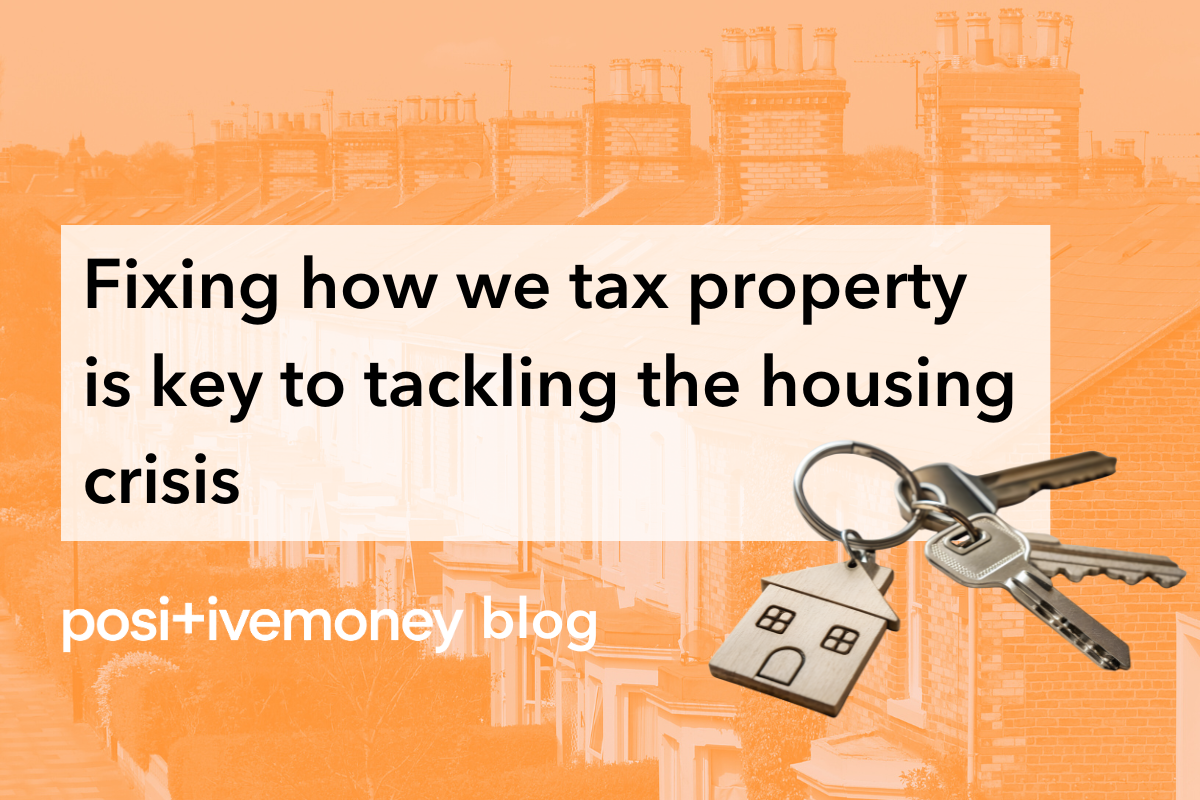
HousingUK
9 October 2025
No matter where we live or what we do for a living, we all want a place to call home.
But for decades, the UK housing market has been designed to turn our homes into assets, used as vehicles for generating and hoarding wealth. As house prices rise faster than wages, you can now earn more money by owning a house than by working. This leaves safe and comfortable homes out of reach for millions, especially young people, racialised communities, and those on low incomes.
Banks and landlords have been sucking up more and more of people’s money through rent and mortgage payments, leaving less for everything else, while waiting lists for social housing, and rates of homelessness and temporary accommodation, stand at record highs.
In the 1990s, it took the average family four years to save for a deposit – today it's 22, or 32 years if you live in London. This cannot go on, and most people agree.
A majority of UK homeowners (54%) would be happy if their own home didn’t rise in value over the next 10 years if it meant houses were more affordable for those who don't own property.
Houses should be homes, not financial assets.
Many governments have tried to help people onto the ‘housing ladder’, but instead they’ve ended up pulling that ladder even further out of reach by spurring on demand, which will always outpace supply. Instead of more sticking plasters, we need bold action to slowly let the air out of the housing bubble so we can all access the safe, warm and comfortable homes we need.
We need to tackle the root causes of our housing crisis by ending the treatment of homes as assets.
Plans should include: fairer taxes on owners of multiple properties; vital reforms to strengthen and protect the rights of renters, including rent controls; government support for alternatives to home ownership and the private rented sector, including social and community-led housing; policies that target longstanding racial inequalities within the housing sector; and a more coordinated approach between the Treasury and the Bank of England to stop throwing fuel on the fire with policies that stoke the housing boom and bust cycles, and instead work to guarantee sustainable and stable house prices.
As the cost of living and climate crises overlap with our broken housing system, we must also expand our focus beyond building. We can do this by increasing the volume of social sector homes, for example via buy back schemes, and using our existing house stock more efficiently, as well as improving their quality with a mass retrofitting programme, to help bring down energy bills whilst paying heed to our carbon budget.
The Impacts of the Housing Crisis on People of Different Ethnicities report
Parliamentary event - Beyond Building: Fixing the UK Housing Crisis

Bank of England finally admits high house prices are determined by finance, not supply and demand
Cashing out: English landlords selling up in 2023 are set to make thousands in capital gains